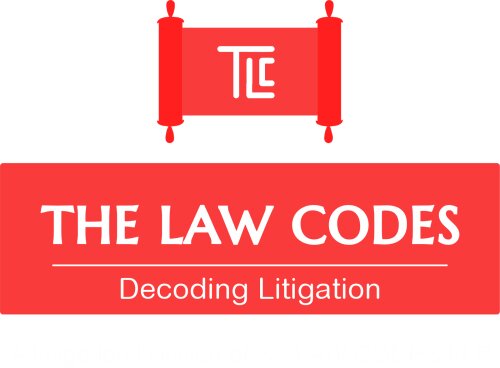Best Child Custody Lawyers in Chandigarh
Share your needs with us, get contacted by law firms.
Free. Takes 2 min.
Free Guide to Hiring a Family Lawyer
List of the best lawyers in Chandigarh, India
About Child Custody Law in Chandigarh, India:
Child custody refers to the legal and physical care of a child post-divorce or separation. In Chandigarh, India, child custody laws are governed by the Guardians and Wards Act, 1890, which focuses on the best interests of the child. The court decides custody based on factors like the child's welfare, bond with each parent, and their ability to provide a nurturing environment.
Why You May Need a Lawyer:
You may need a lawyer for child custody issues if you're facing a custody battle, seeking visitation rights, modifying an existing custody arrangement, or dealing with parental kidnapping. A lawyer can provide legal advice, represent you in court, and ensure that your rights as a parent are protected.
Local Laws Overview:
In Chandigarh, India, child custody cases are typically resolved in the Family Court or the District Court. The court may grant joint custody, sole custody, or visitation rights based on the child's best interests. Factors like the child's age, preference, and parental capabilities are considered during custody hearings.
Frequently Asked Questions:
1. How is child custody decided in Chandigarh, India?
Child custody is decided based on the child's best interests, considering factors like parental bond, financial stability, and the child's welfare.
2. Can a child's preference impact custody decisions?
Yes, older children's preferences are considered by the court, but the final decision is based on what is best for the child.
3. Can grandparents seek custody of a child in Chandigarh?
Yes, grandparents can seek custody if it is in the child's best interests, and the court deems them capable of providing a suitable environment.
4. Can custody arrangements be modified in Chandigarh?
Yes, custody arrangements can be modified if there is a significant change in circumstances or if it is in the child's best interests.
5. What rights do non-custodial parents have in Chandigarh?
Non-custodial parents typically have visitation rights and the right to be informed about the child's welfare and education.
6. How long does a custody case typically take in Chandigarh?
The duration of a custody case can vary depending on the complexity of the case and the court's schedule. It can take several months to resolve a custody dispute.
7. Can a lawyer help in negotiating a custody arrangement outside of court?
Yes, a lawyer can assist in negotiating a custody arrangement through mediation or out-of-court settlements to avoid litigation.
8. What should I do if the other parent violates the custody order?
If the other parent violates the custody order, you can seek legal recourse by filing a contempt petition with the court.
9. Can a parent relocate with the child post-divorce in Chandigarh?
A parent can relocate with the child post-divorce, but they must obtain permission from the court if it impacts the existing custody arrangement.
10. How can I enforce a foreign custody order in Chandigarh, India?
You can enforce a foreign custody order in Chandigarh by registering the order with the Indian court and following the necessary legal procedures.
Additional Resources:
If you need legal assistance with child custody matters in Chandigarh, you can contact the District Court or seek guidance from organizations like the Child Welfare Committee or the Women and Child Development Department.
Next Steps:
If you require legal assistance in child custody matters in Chandigarh, it is advisable to consult with a family law attorney who specializes in child custody cases. They can guide you through the legal process, represent you in court, and ensure that your rights as a parent are protected.
Lawzana helps you find the best lawyers and law firms in Chandigarh through a curated and pre-screened list of qualified legal professionals. Our platform offers rankings and detailed profiles of attorneys and law firms, allowing you to compare based on practice areas, including Child Custody, experience, and client feedback.
Each profile includes a description of the firm's areas of practice, client reviews, team members and partners, year of establishment, spoken languages, office locations, contact information, social media presence, and any published articles or resources. Most firms on our platform speak English and are experienced in both local and international legal matters.
Get a quote from top-rated law firms in Chandigarh, India — quickly, securely, and without unnecessary hassle.
Disclaimer:
The information provided on this page is for general informational purposes only and does not constitute legal advice. While we strive to ensure the accuracy and relevance of the content, legal information may change over time, and interpretations of the law can vary. You should always consult with a qualified legal professional for advice specific to your situation.
We disclaim all liability for actions taken or not taken based on the content of this page. If you believe any information is incorrect or outdated, please contact us, and we will review and update it where appropriate.












